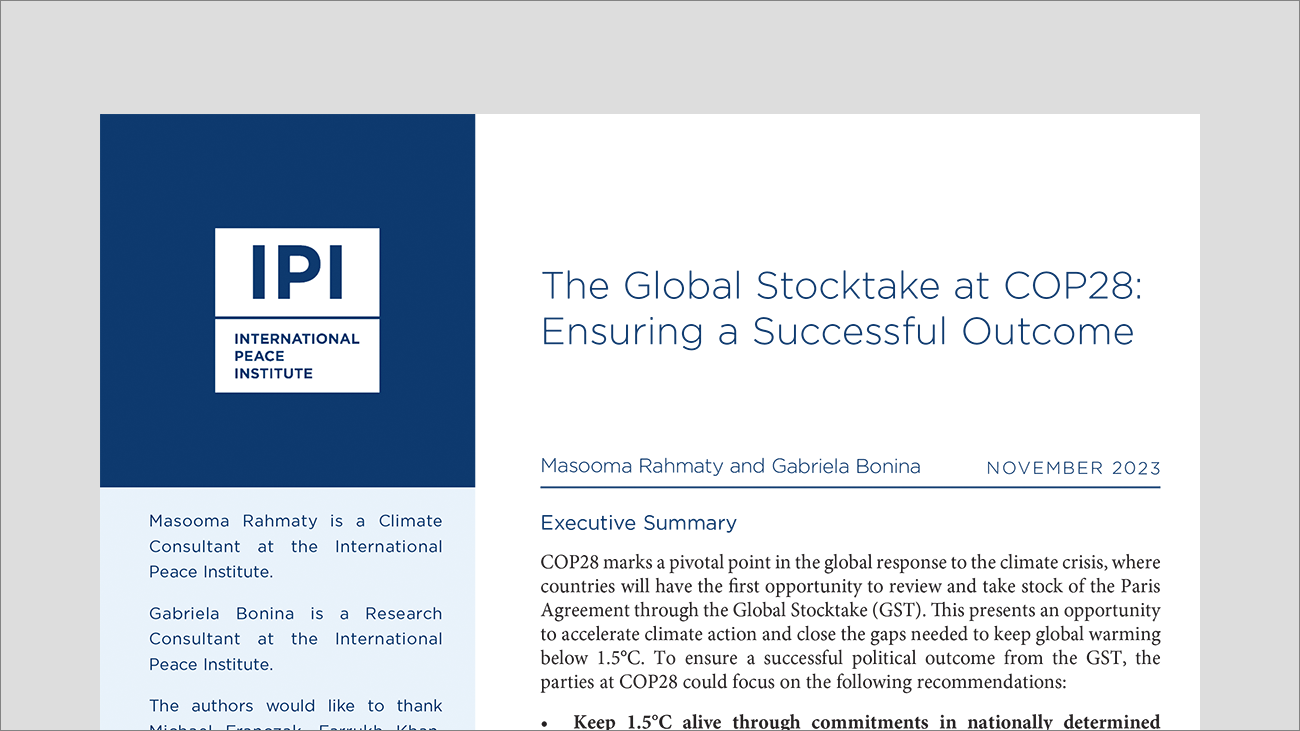
COP28 marks a pivotal point in the global response to the climate crisis, where countries will have the first opportunity to review and take stock of the Paris Agreement through the Global Stocktake (GST). This presents an opportunity to accelerate climate action and close the gaps needed to keep global warming below 1.5°C. To ensure a successful political outcome from the GST, the parties at COP28 could focus on the following:
- Keep 1.5°C alive through commitments in nationally determined contributions: Governments, especially major emitters and future major emitters, need to commit to ambitious measures to reduce greenhouse-gas emissions. The GST outcome should provide specific guidance and actionable suggestions to countries as they prepare to submit their new or updated NDCs in 2025.
- Phase out fossil-fuel production: Parties should agree to call for a sustained and widespread phase-out of fossil-fuel production, including the elimination of subsidies for domestic and foreign fossil-fuel extraction. The goal should be to achieve net-zero carbon emissions as close as possible to 2040 (for developed countries) and 2050 (for emerging economies). An ambitious GST outcome would also include individual and collective commitments to triple global capacity for renewable energy by 2030.
- Price emissions: Parties should go beyond making pledges and develop mechanisms and frameworks that incentivize action. Carbon pricing is one such mechanism. A global carbon-pricing floor should differentiate between developed and developing countries, and the price should be set based on the markets rather than on a distinction between high and low emitters. Implementing a global carbon-pricing strategy could foster cooperation between developed and developing countries to safeguard the planet’s climate.
- Improve the quality and quantity of climate finance: Getting countries out of debt, especially those vulnerable to climate impacts, should be a priority. Donor countries can also explore innovative strategies for utilizing the International Monetary Fund’s special drawing rights to provide grants instead of putting countries more in debt. Bridgetown 2.0 highlights a path toward reforming the global financial system to better serve developing countries through currency exchange guarantees, disaster clauses for debt deals, and reforms to multilateral development banks to increase lending.
- Capitalize the Loss and Damage Fund: Now that countries have agreed to establish the Loss and Damage Fund, they should make pledges and pursue innovative finance, including taxes and levies on shipping, air travel, financial transactions, and fossil fuel extraction.







